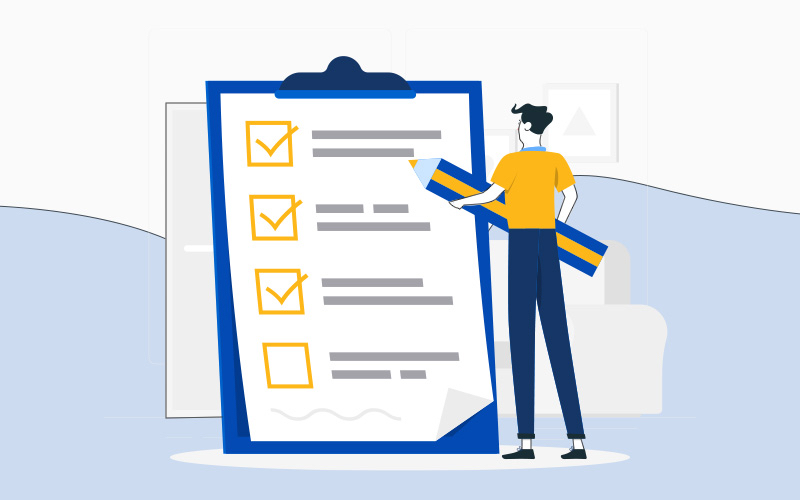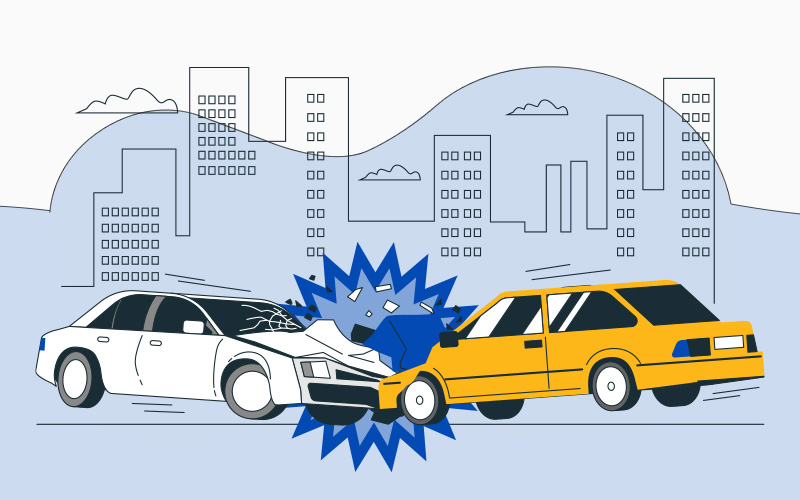A Comprehensive Guide to Third-Party Liability Insurance
Part 1: Introduction

Running a business comes with many responsibilities, including ensuring the safety of customers, suppliers, and the general public. However, accidents can happen anytime, and if your business is found responsible for causing injury or property damage to a third party, you could face costly legal claims. This is where third-party liability insurance plays a crucial role, providing financial protection and security.
Also known as public liability insurance, third-party liability insurance covers legal fees, compensation costs, and damages if your business is held liable for incidents involving third parties. Whether you own a retail shop, operate a construction firm, or organise public events, having this insurance helps safeguard your business from unexpected financial burdens. A simple accident, such as a customer slipping on a wet floor or a delivery truck damaging a client’s property, could lead to substantial expenses if you do not have adequate coverage.
While third-party liability insurance is not mandatory for all businesses in Singapore, it is often required in industries like construction, event management, and commercial leasing. Even if it is not required by law, having this coverage can go a long way in maintaining financial security and business continuity in case of legal disputes.
This guide will help you understand how public liability insurance works, who needs it, and why it is an essential investment for your business.
Part 2: Understanding Third-Party Liability Insurance

2.1. What Does Third-Party Liability Insurance Cover?
Third-party liability insurance protects businesses from financial losses arising from claims made by third parties due to accidents, injuries, or property damage caused by business operations. This should not be confused by another similar policy, known as commercial general liability. As its namesake suggests, the former is designed to safeguard businesses from incidents arising from third-party incidents, while the latter offers protection for businesses operating in high-risk environments, such as construction and transportation. Here are the key areas covered under this insurance:
1. Accidental Bodily Injury or Illness
If a third party, such as a customer, supplier, or visitor, suffers an injury or illness due to your business activities, your public liability insurance will cover medical expenses, legal costs, and any compensation required.
Example: A customer visits your café and slips on a wet floor that was not properly signposted. They sustain an injury and decide to sue your business. Your insurance will cover their medical bills, legal fees, and any compensation awarded.
2. Accidental Property Damage
If your business accidentally damages someone else’s property, this insurance policy will cover the repair or replacement costs.
Example: A delivery truck operated by your company accidentally backs into a client’s gate whilst unloading, causing significant damage. The client demands compensation, and your insurance covers the repair costs.
3. Legal and Litigation Costs
If a third party takes legal action against your business, third-party liability insurance will cover the expenses involved in defending your case, including lawyer’s fees, court costs, and settlement amounts.
Example: A supplier gets injured whilst making a delivery at your warehouse and files a lawsuit. Your insurance covers the legal defence costs and any settlement required.
By covering these risks, third-party liability insurance ensures businesses do not have to bear the full financial burden of lawsuits or compensation claims, allowing them to operate with greater confidence and sense of security.
2.2. Who Needs Third-Party Liability Insurance?
Third-party liability insurance is essential for businesses that interact with customers, suppliers, or the public. Accidents can happen unexpectedly, and without proper coverage, legal claims could result in severe financial strain. Here are some key groups that should have this insurance:
1. Business Owners
Any business that engages with the public—whether in retail, hospitality, or professional services—should have public liability insurance. Even minor incidents, such as a customer slipping in a shop or a visitor being injured on-site, can lead to costly legal claims.
2. Contractors and Subcontractors
Many industries, particularly construction and renovation, require contractors to have public liability insurance. Clients often demand proof of coverage before allowing work to begin.
Example: Whilst working on a renovation project, a construction worker accidentally damages a neighbouring property. The client expects the contractor’s insurance to cover the repair costs.
3. Event Organisers
Businesses involved in organising festivals, exhibitions, or corporate events need insurance to protect against liability claims.
Example: An exposed cable has caused a guest at an event to trip and suffer an injury. The event organiser’s insurance covers medical costs and legal fees.
4. Landlords and Tenants
Commercial landlords may require tenants to obtain public liability insurance to protect against liability claims related to the rental property.
5. Active Mobility Device Providers & Employers
Under Land Transport Authority (LTA) regulations, licensed mobility device-sharing operators must ensure users are covered by third-party liability insurance. Businesses employing delivery riders who use active mobility devices must also provide coverage for injury or property damage claims.
Regardless of industry, public liability insurance provides businesses with the financial security needed to handle unexpected third-party claims effectively.
2.3. Why You Need Third-Party Liability Insurance
Running a business involves risks, and even with the best precautions, accidents can still happen. Third-party liability insurance ensures that your business is protected from unexpected legal and compensation costs. Here’s why this coverage is essential:
1. Peace of Mind
Accidents involving third parties can lead to expensive lawsuits. Without insurance, your business would have to cover medical expenses, property repairs, and legal fees out of pocket. Public liability insurance ensures that these costs are handled, allowing you to focus on running your business without financial stress.
2. Risk Mitigation
No matter how careful you are, mistakes and accidents can occur. A simple incident, such as a customer tripping over an uneven floor, can lead to costly claims. Insurance reduces the financial burden, preventing such incidents from disrupting your business operations.
3. Business Credibility
Having public liability insurance shows that your business is responsible and professional. Many clients and partners prefer to work with insured businesses, as it assures them that any liabilities will be handled properly. This can give your business a competitive edge.
4. Contractual Requirements
Some industries and clients require businesses to have public liability insurance before signing contracts. For example, construction firms must often provide proof of coverage before starting projects, and commercial landlords may require tenants to have insurance as part of their lease agreements.
By investing in public liability insurance, businesses can safeguard their financial stability and reputation whilst ensuring compliance with industry requirements. Whether you run a small shop or a large enterprise, this coverage provides essential protection against unexpected third-party claims.
Part 3: How Third-Party Liability Insurance Works

3.1. How Claims Are Processed
If an accident occurs and a third party files a claim against your business, understanding the claims process can help you respond effectively. Third-party liability insurance ensures that legal and litigation costs are covered, but the process involves several key steps:
1. Claim Reporting
As soon as an incident occurs, you must inform your insurer. Providing prompt and detailed information can speed up the claims process.
- Gather evidence such as photographs, witness statements, and accident reports.
- Include medical records or repair estimates if applicable.
- Submit the claim within the timeframe specified in your liability insurance policy terms to avoid delays.
Example: A customer falls in your store and injures their ankle. You notify your insurer and submit CCTV footage, medical reports, and an incident report.
2. Investigation and Liability Assessment
Once the claim is reported, the insurer will assess the details to determine if your business is liable under the policy. This involves:
- Reviewing documents and evidence provided.
- Consulting legal and industry experts if necessary.
- Determining whether the claim is valid based on your insurance coverage.
3. Payment of Legal Costs and Compensation
If the claim is approved, the insurer will cover legal fees, settlement costs, or court-ordered compensation up to the policy limit.
Example: After tripping on an unsecured cable in your warehouse, a supplier has decided to sue your business. If the claim is valid, your insurer will cover legal expenses and any awarded compensation.
By understanding the claims process, businesses can ensure they follow the correct steps to receive financial support when needed, minimising disruptions and protecting their financial stability.
3.2. Coverage Limits and Exclusions
While public liability insurance provides valuable protection, it’s important to understand its coverage limits and exclusions. Knowing what is and isn’t covered helps businesses make informed decisions about their insurance needs.
1. Policy Limits
Every third-party liability insurance policy has a coverage limit, which is the maximum amount the insurer will pay for claims. If a claim exceeds this limit, the business is responsible for covering the remaining costs.
Example: A retail shop has an insurance policy with a coverage limit of S$500,000. If a customer wins a lawsuit for S$600,000 after being injured in the store, the insurer will cover up to S$500,000, and the business must pay the remaining S$100,000.
Businesses should assess their risk exposure and consider higher coverage limits for industries with greater liability risks, such as construction and event management.
2. Exclusions in Coverage
Not all incidents are covered under third-party liability insurance. Common exclusions include:
- Gross Negligence or Intentional Harm: If a business knowingly ignores safety protocols or causes harm intentionally, the claim may be denied.
- Employee Injuries: Workplace injuries involving employees are covered under Work Injury Compensation Insurance, not public liability insurance.
- Product Liability: Damage or harm caused by defective products is covered under a separate product liability insurance policy.
- Professional Errors: Mistakes related to professional advice or services require professional indemnity insurance.
- Property Under Your Control: If you damage rented or borrowed equipment, it is not covered under public liability insurance.
Understanding these limitations ensures businesses get the right coverage and avoid unexpected costs when making a claim.
3.3. Examples of Claims Scenarios
Understanding real-world examples of how third-party liability insurance works can help businesses better grasp its importance. Here are two common scenarios:
1. Slip and Fall Incident
A customer walks into your retail store, and due to a wet floor that was not properly signposted, they slip and sustain an injury. The customer decides to file a lawsuit for medical expenses and pain and suffering. Your third-party liability insurance will cover the medical bills, legal fees, and any compensation awarded, up to the policy’s limit.
2. Property Damage
A contractor accidentally damages a client’s property while working on a project. The client files a claim for the repair costs. In this case, third-party liability insurance will cover the cost of repairs and any legal expenses related to defending the claim.
These examples highlight how third-party liability insurance offers protection for businesses against unexpected incidents. By covering the costs associated with legal defence, medical bills, or property damage, the insurance helps ensure that your business can continue operations without bearing the full financial burden of these claims. This coverage is essential for mitigating the financial risks associated with day-to-day business activities.
FAQs
1. Is Third-Party Liability Insurance a Legal Requirement?
While third-party liability insurance is not mandatory for all businesses, certain industries in Singapore, such as construction and event management, may require it by law. In these sectors, having this coverage is essential for compliance with regulatory standards and contracts. Even if not legally required, public liability insurance remains a smart investment for any business. It helps protect against potential legal claims, medical costs, or property damage that could otherwise lead to significant financial losses. Having this coverage in place ensures stability and peace of mind for business owners.
2. What Happens If I Don’t Have Third-Party Liability Insurance?
Without third-party liability insurance, your business would be fully responsible for covering all legal fees, compensation, and damages in the event of a claim. This could include medical expenses, property repairs, and legal costs if your business is found liable for an accident or injury. A single lawsuit could put a significant strain on your finances, potentially affecting your cash flow or even threatening the future of your business. Additionally, the lack of coverage could harm your business's reputation, making it difficult to attract clients or partners who require proof of insurance.
3. Can I Get Third-Party Liability Insurance for My Home-Based Business?
Yes, home-based businesses can benefit from third-party liability insurance. This coverage protects you against claims from clients or visitors who may suffer injuries while on your property, such as a slip and fall accident. It also covers any potential damage to goods or property that could occur during business operations, like deliveries or services provided. Even if your business is based at home, having this insurance is essential to safeguard against unforeseen risks and protect your personal finances, ensuring that your business runs smoothly and securely.
Third-party liability insurance is a crucial safety net for businesses in Singapore, protecting them against the financial risks of accidents and lawsuits. Whether you are a contractor, event organiser, or retail shop owner, this insurance ensures your business remains financially stable while maintaining credibility and trust with clients.
As one of the most trusted business insurers in Singapore, eazy specialises in a wide range of insurance policies, as well as being an aggregator for prospective clients to compare insurance policies to find the most suitable one for their needs. Additionally, our team of experts are always at hand to offer insight and advice on how you and your business can be adequately protected.
For more information on our services, please contact us today.
Contact us for policy quotation,
comparison and unbiased advice now!